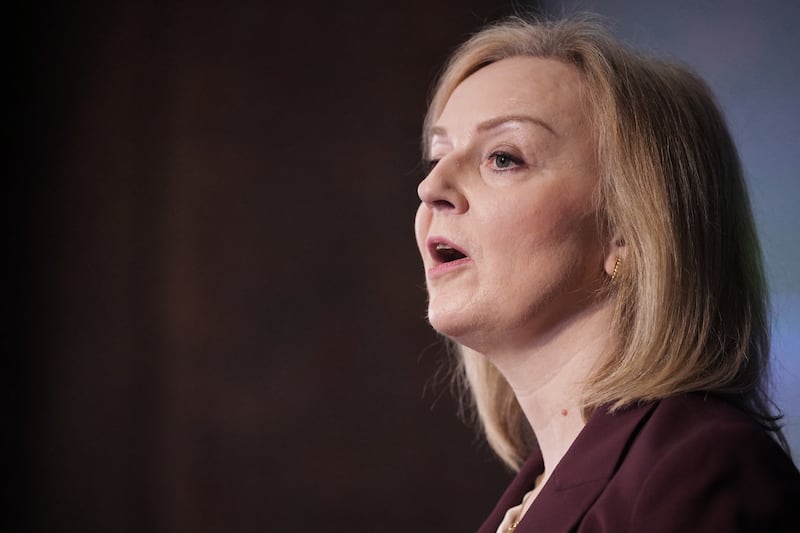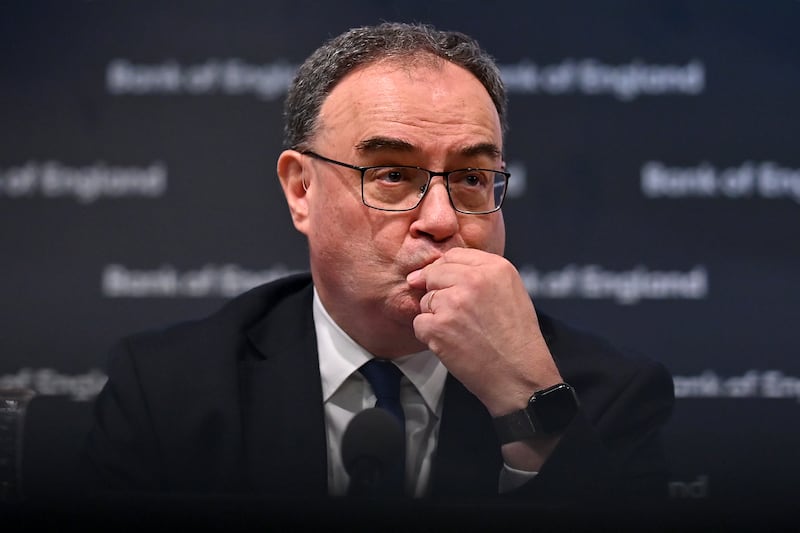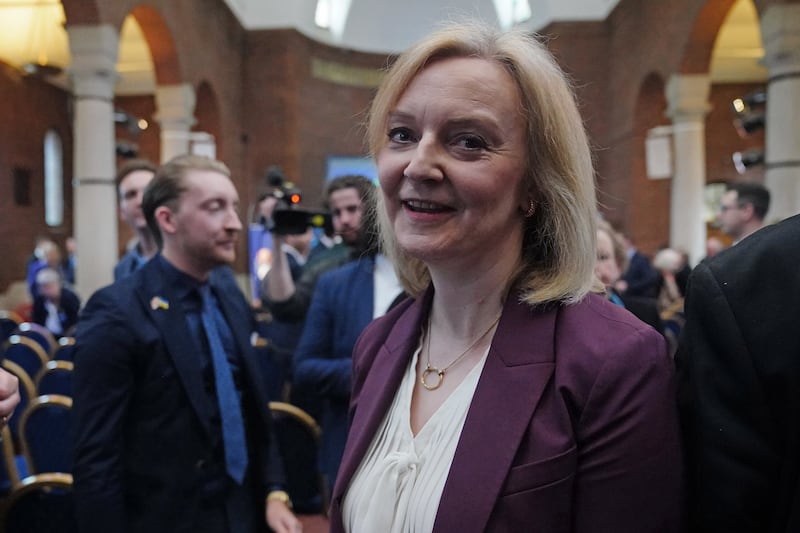UK interest rates have been held at 5.25% as the Bank of England said it is “much too early” to think about cutting borrowing costs, despite giving a bleak outlook for the economy.
The Bank’s governor, Andrew Bailey, insisted that households and businesses will feel more pain if price rises do not ease.
The Bank’s Monetary Policy Committee (MPC) voted by a six-three majority to keep the base rate at 5.25%. Three members preferred to increase rates to 5.5%.
Mr Bailey said: “Let me be clear, there is absolutely no room for complacency. Inflation is still too high.
“We will keep interest rates high enough for long enough to make sure we get inflation all the way back to the 2% target.
“We will be watching closely to see if further increases in interest rates are needed. But even if they are not, it is much too early to be thinking about rate cuts.”
Mr Bailey said monetary policy must be restrictive for long enough to “squeeze inflation out of the system”, but acknowledged it should not be for an “excessively long” period.

(PA Graphics)
The firm stance came despite evidence that the pain of higher rates is being felt throughout the economy.
New projections produced by the MPC showed that economic growth will flatline next year with 0% growth in 2024, down from a 0.5% increase predicted in August.
It will not grow until 2025, where it is expected to eke out gross domestic product (GDP) of 0.25%.
The outlook for this year remains the same, with GDP expected to grow 0.5%.
The Monetary Policy Committee voted by a majority of 6-3 to hold #BankRate at 5.25%. Find out more in our #MonetaryPolicyReport: https://t.co/DlCn88I5ut pic.twitter.com/j5wFmmTtsb
— Bank of England (@bankofengland) November 2, 2023
The Bank, which uses interest rates as a tool to bring inflation down to its 2% target, said price rises have been slowing more rapidly than previously expected.
Energy, food and goods prices are acting as the biggest drags on inflation.
The MPC now thinks Consumer Prices Index (CPI) inflation will drop sharply to about 4.6% over the final three months of 2023 – meaning Prime Minister Rishi Sunak will be well within his target to halve inflation by the end of the year.
CPI will then average about 3.3% in 2024, higher than the 2.5% predicted in August, before returning to target by the end of 2025, later than previously thought.

Mr Bailey said the war between Israel and Hamas is driving some uncertainty over the global economic outlook.
“The events in the Middle East are tragic in terms of the human cost,” he said.
“We have to view it through the economic lens. It does create uncertainty, it does I think create a risk of higher energy prices.
“So far, I would say that hasn’t happened and that’s obviously encouraging, but the risk remains.”
More than half of the impact of the Bank’s two-year-long cycle of increasing rates is still set to come through the economy, the MPC said.
It will largely be felt through housing investment, with fewer new building and development projects, as well as some impact on household spending.
Many mortgage-holders who are due to reach the end of their fixed-rate deals have already started adjusting their spending in anticipation of higher costs.
The Bank’s decision comes after the US Federal Reserve also opted to hold interest rates steady on Wednesday, in a sign that it thinks inflationary pressures are easing.








